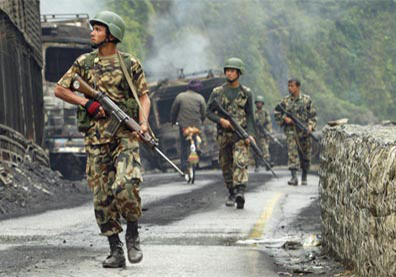Nepal’s new anti-torture bill is a welcome effort, but it must be revised to comply fully with international human rights law, the ICJ said in a briefing paper released today.
“Nepal’s anti-torture bill is a significant development, and has the potential to be an important step towards countering the systemic impunity for gross human rights violations in the country,” said Sam Zarifi, ICJ’s Asia Director.
“It is therefore crucial that the Bill be revised to fully comply with international human rights law,” he added.
In a 37-paged briefing paper released today, the ICJ has analyzed the Torture and Cruel, Inhuman or Degrading Treatment (Control) Bill, 2014 against relevant international law and standards, finding that several provisions of the bill are inconsistent with Nepal’s international obligations.
Major problems include the definition and scope of torture and other ill-treatment in the Bill, the existence of a limitation period for filing complaints, the disproportionately low severity of penalties imposed, and the failure to provide access to effective remedies and reparations for victims.
The briefing paper is released at a time when the United Kingdom is prosecuting a Nepali military officer, Colonel Kumar Lama, for allegations of torture and other ill-treatment during Nepal’s decade long internal armed conflict (photo).
“There are several other instances of torture and other human rights abuses during the conflict era that remain uninvestigated. It is high time that Nepal puts in place a strong anti-torture law that challenges entrenched impunity and enables victims to seek justice and accountability,” Zarifi said.
To this end, the ICJ has made a serious of recommendations in the briefing paper, which include:
- Revising the Bill to reflect the definition of torture and cruel, inhuman and degrading punishment in a manner consistent with the Convention against Torture and other international instruments
- Increasing the maximum penalty provided in the Bill, and providing for enhanced punishment for the supervising officer when he / she is complicit in torture
- Removing the limitation period for filing complaints and lodging cases
- Removing any penalties for the alleged filing of “fake” complaints
- Ensuring the right to all forms of reparation, not only compensation, when there are reasonable grounds to believe that torture or ill-treatment has taken place, and irrespective of the existence or outcome of a judicial proceeding
- Including a provision enabling authorities in Nepal to prosecute individuals accused of torture and ill-treatment, irrespective of their nationality and where the crime was committed
- Revising the Bill to be fully consistent with the international principle of non-refoulement, which prohibits the extradition, deportation, expulsion or removal in any other way of a person to a territory where there is a real risk of torture or other ill-treatment
- Placing obligations on specific State institutions to establish preventive programs for torture and monitoring their implementation.
Nepal-Torture Bill-Advocacy-Analysis Brief-2016-ENG (full text in PDF)

